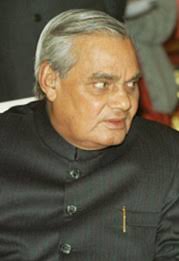Atal Bihari Vajpayee: The Architect of Coalition Politics and Good Governance
Atal Bihari Vajpayee, a statesman and orator, pioneered coalition politics in India and prioritized good governance. As the first non-Congress prime minister to serve a full term, he faced significant challenges, including national crises and economic reforms. His contributions to governance and diplomacy remain influential in Indian politics.

- Country:
- India
Atal Bihari Vajpayee, India's first non-Congress prime minister to complete a full term, was celebrated for his statesmanship and oratory. His presence in Indian politics was transformative, steering the Bharatiya Janata Party (BJP) to the national forefront with his focus on coalition governance and cultural agenda.
Vajpayee crafted a political legacy defined by diplomatic acumen, crisis management, and economic reform. His tenure included handling challenging situations like the 1999 Kargil conflict with Pakistan, reflecting his adept leadership during national crises. Through initiatives like the Sarva Shiksha Abhiyan and the Golden Quadrilateral highway project, he underscored 'good governance' as central to his administration's goals.
Despite setbacks, including the 2004 electoral defeat, his dedication to dialogue, consensus, and balanced governance endured beyond his years in office. His vision of a modern India rooted in tradition remains a benchmark for political discourse, earning the Bharat Ratna posthumously.
(With inputs from agencies.)









